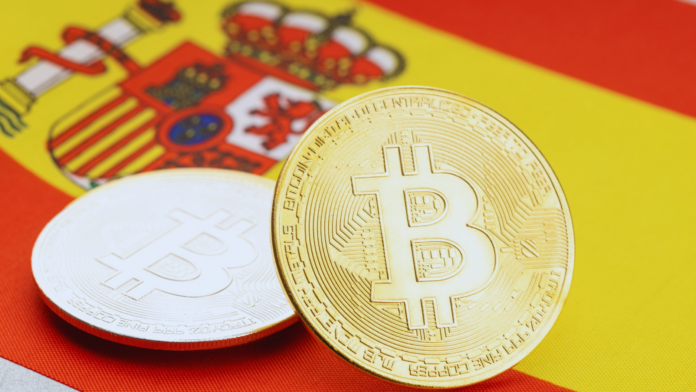In an era where digital innovation reshapes economic landscapes, Spain stands out for its pioneering approach to taxation. The Spanish Ministry of Finance, under the leadership of María Jesús Montero, is spearheading legislative reforms aimed at embracing the digital economy. By integrating digital currencies into tax collection, Spain is not just adapting to technological advancements; it’s setting a new standard for fiscal policy and governance.
The initiative to update the General Tax Law, particularly Article 162, to include the seizure of cryptocurrencies for settling tax debts is a bold move. It reflects a strategic merging of traditional financial oversight with the digital economy’s dynamism. This policy adjustment signifies Spain’s commitment to staying ahead in the rapidly evolving financial landscape, ensuring that the nation’s tax collection efforts are both modern and effective.
Expanding the scope of entities authorized to collect taxes beyond traditional financial institutions to include electronic money establishments marks a significant step towards broadening the tax base. This expansion aims to combat tax evasion and enhance transparency across financial transactions, addressing the unique challenges presented by the digital economy.
Moreover, Spain is actively working on regulatory adjustments to address the complexities of cryptocurrency transactions. By aligning national policies with the European Union’s Markets in Crypto-Assets Regulation (MiCA), Spain is at the forefront of establishing a comprehensive regulatory framework for digital assets. This proactive approach underscores Spain’s commitment to regulatory compliance and market oversight, ensuring a stable and secure financial environment in the digital age.
The changes introduced by these legislative reforms come with new responsibilities for Spanish taxpayers, especially those holding cryptocurrencies on international platforms. A defined period for declaration has been established, compelling individuals and corporations to disclose their digital asset holdings. This transparency initiative is reflective of a global trend towards the integration of digital currencies into national tax frameworks, recognizing the growing significance of these assets in the global economy.
As Spain navigates the intricacies of digital asset taxation, its approach offers valuable lessons on how countries can adapt to technological advancements while ensuring fair and effective tax collection. This initiative is not merely about addressing the immediate needs of the tax system; it’s about anticipating the future of financial transactions and laying the groundwork for a more inclusive and transparent financial ecosystem.
Spain’s journey towards integrating digital currencies into its tax collection efforts is emblematic of a broader move towards innovation and regulation in financial policy. This balance is crucial for fostering a financial environment that is both dynamic and secure, encouraging growth while ensuring compliance and fairness.
The implications of Spain’s approach extend beyond national borders, offering insights for other nations grappling with similar challenges. As digital currencies become increasingly mainstream, the need for comprehensive regulatory frameworks that can accommodate the unique characteristics of these assets becomes paramount. Spain’s proactive stance could serve as a model for other countries, highlighting the importance of adaptability, transparency, and strategic planning in the digital age.
In conclusion, the Spanish Ministry of Finance’s initiative to incorporate digital currencies into the nation’s tax collection system is a testament to the government’s forward-thinking and adaptable approach to governance. By blending innovation with regulation, Spain is not only enhancing its tax collection efforts but also contributing to the stability and growth of the global financial ecosystem. As digital assets continue to play a more significant role in economies worldwide, Spain’s pioneering efforts in this area underscore the potential for technology to transform traditional systems for the better.
This strategic integration of digital assets into tax collection frameworks highlights a crucial aspect of modern governance: the ability to evolve with technological advancements. Spain’s initiative serves as a compelling example of how nations can navigate the complexities of the digital economy, ensuring that fiscal policies remain relevant, effective, and equitable in an increasingly digital world.
















